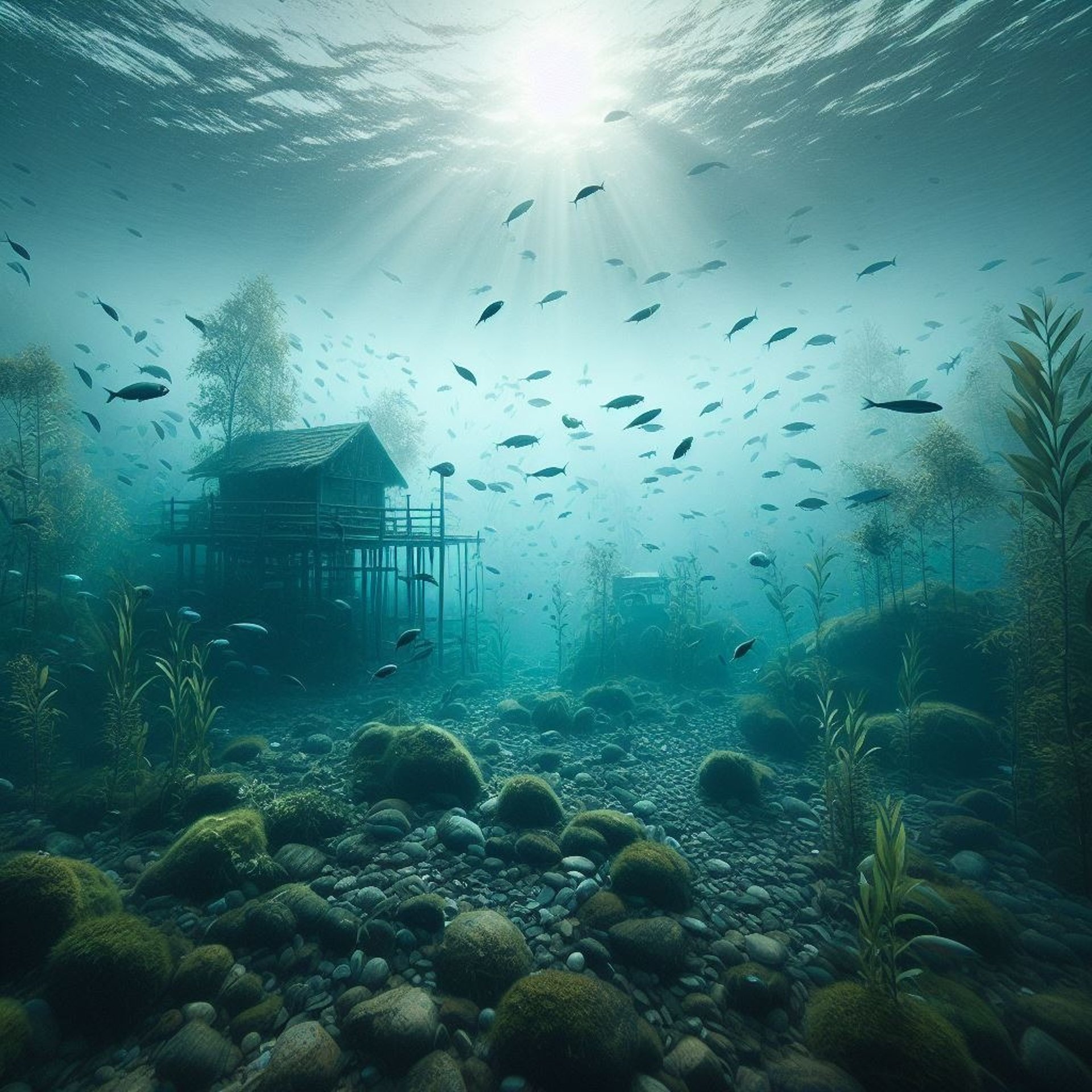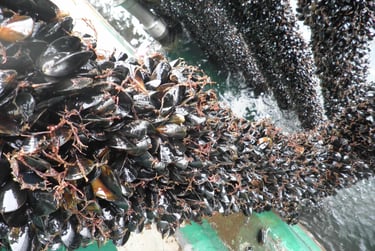
Mussels Ireland
Methods: Mussel farming in Ireland is a sustainable and environmentally friendly practice that has been adapted from various international techniques. The industry focuses on both rope culture and bottom culture methods, with rope culture being the more common approach. Mussel farmers use special reusable ropes suspended in the ocean, to which the mussels naturally attach. In shallower waters, mussels are grown directly on the seabed.
Sustainable: Spat, or mussel seeds, are either collected from the wild or settle naturally, and there is ongoing research into developing a hatchery. Mussel farming does not rely on commercial feed sources as mussels are filter feeders, obtaining nutrients from the surrounding water. This makes mussel farming an environmentally sustainable practice with minimal impact on the habitat.
Certification: The industry is certified by the Marine Stewardship Council (MSC), ensuring that Irish mussels are produced to the highest standards. The certification provides valuable evidence of the sustainable environment in which Ireland’s seafood is produced. Mussel farmers are also certified under the BIM’s ‘Certified Quality Aquaculture’ programme, ensuring high food safety and environmental standards and supported by Inshore Fisheries Ireland
Export: The mussel industry in Ireland is export-focused, with significant growth in recent years. In 2019, the average number of mussel purchases was 2.7 tonnes, marking a 13% increase from 2018 and a 22% increase from 2018 in price. Approximately 10,400 tonnes of Irish mussels were exported, valued at €16M.
Conservation: Additionally, mussel farming contributes to the conservation of freshwater pearl mussels, an endangered species in Ireland and Western Europe. The Pearl Mussel Project, which concluded in December 2023, aimed to develop positive farming practices that protect the freshwater pearl mussel and benefit the wider environment.
Mussel farming in Ireland involves collecting wild mussel spat, which are then grown on ropes or rafts suspended in the sea, and it plays a significant role in the country’s seafood industry while also contributing to conservation efforts like the Pearl Mussel Project.

Although FishFarmSolutions.com does not endorse third-party services, all links are reviewed for relevance and operational status. Verified listings meet our basic criteria for transparency and contactability.


